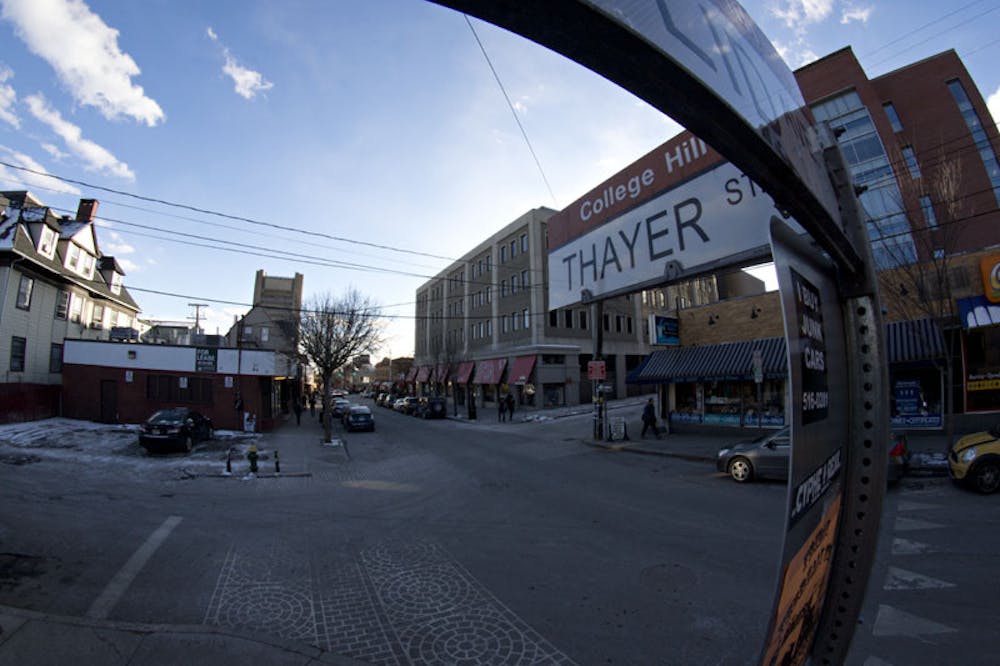Though the study to determine the future of Thayer Street’s infrastructure is still being developed, other changes centering around security and regulation in the area are now or may soon be in effect.
The Thayer Street District Management Authority held a meeting in June attended by many safety officers, including representatives from the Department of Public Safety and Providence Police, said Robin Remy, the group’s executive director. Statistically, trends reveal a spike in crime-related incidents during the summer and early fall months, she said, and “the Providence Police absolutely agreed there is a crime increase.” Recently, there has been evidence of gang activity on Thayer, Remy said, citing incidents of gang-related graffiti.
Safety concerns surrounding the summer and early fall months were raised again at the TSDMA’s July meeting, Remy said. Consequently, the police agreed to increase their presence in the area, and the TSDMA hired a two-man police detail to patrol every Thursday, Friday and Saturday evening through the end of September, Remy said. They began these patrols on the first weekend of August, and there are not currently plans to extend this protocol past the end of September due to budgetary restrictions, she added.
To improve security in the future, the TSDMA is considering installing surveillance cameras on Thayer Street. They are “really helpful in determining who did what” when investigating an incident, Remy said. If installed, these cameras would be publicized to “create a more visible presence,” she said, adding that the TSDMA also wants to encourage local entities to do a better job of self-monitoring.
The TSDMA is also exploring partnering with a company that would provide ambassadors to provide an extra sense of security on Thayer, Remy said. Generally, ambassadors “are not supposed to be security people,” Remy said. The Downtown Providence District Management Authority currently contracts ambassadors on a much larger scale but for similar purposes.
“They are on the street if anything happens” but are not trained or meant to use force, Remy said. They provide “an extra set of eyes on the street” and develop relationships with local police to help potentially provide “quicker response(s),” Remy said, noting that their primary purpose is to be friendly people to provide “concierge-like service” to those who are “looking for help, assistance, directions.”
Shelley Gresko ’14 called the proposal to hire ambassadors “unnecessary,” adding that funding for such resources could be invested in more productive ways. “I don’t think I need (ambassadors), but maybe some people need that,” she said.
“I feel very safe on Thayer Street,” Gresko said, adding, “The way it is works for students.”
Kevin Argueta ’17 said he “can’t see any downsides” to the idea of having ambassadors on the street, but he added he is not comfortable with the idea of having security cameras installed on Thayer Street, citing privacy concerns.
“I wouldn’t necessarily feel safer, because (cameras) only help you after the fact,” Argueta said. Harrison Liftman ’16 also said he is uneasy with having security cameras, adding, “It’s overdoing it at that point.”
Though the original presentation proposed introducing new regulations and stepping up enforcement of existing regulations — including those focused on liquor licenses, late-night operating hours and outdoor seating — Remy said safety on Thayer Street could be improved by more thoroughly enforcing existing codes regarding issues like space capacities and sidewalk use. “Violations of (codes) can all be enforced by police officers,” Remy said, adding that the increased police presence in the area could help with this issue.

ADVERTISEMENT




